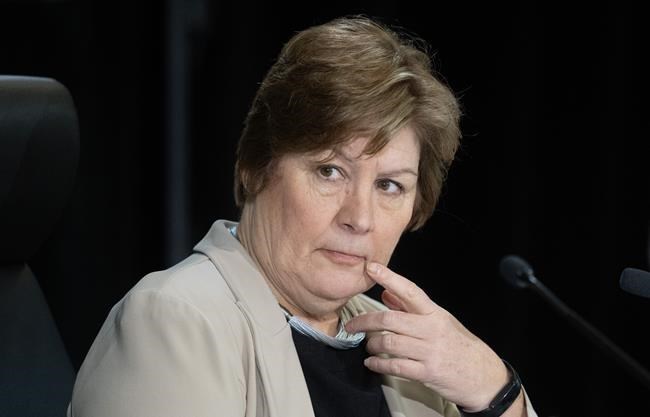OTTAWA — A federal inquiry into foreign interference is trying to allay concerns that participating in the commission's work could put members of diaspora communities at risk.
Commissioner Marie-Josée Hogue says some community members fear reprisals if they provide information to the commission, or worry that all the information they submit will be shared with other participants.
In a statement, Hogue says no participant, including those with standing, will have access to classified information, or information provided to the commission on a confidential basis.
Hogue notes the commission has created measures to protect those who wish to share information but fear "negative consequences" if they are seen to be assisting the inquiry.
The inquiry is delving into allegations of foreign interference by China, India, Russia or others in the 2019 and 2021 federal elections, with a report on those matters due May 3.
A voice for Uyghurs in Canada announced recently it would withdraw from the inquiry.
The group Uyghur Rights Advocacy Project cited risks to the community posed by certain participants in the proceedings — politicians it alleges have close ties to Beijing.
Hogue pointed out Thursday the inquiry has a confidential email address that can be used to send information to the commission.
"The commission has put strict controls in place to protect the confidentiality of any information provided through this email address and the identity of the person or group providing the information," she said in the statement.
Other protections include:
— the ability to redact sensitive information from documents before they are provided to the commission or before they are circulated to some or all of the participants and the public;
— and the option, where personal security is an issue, of testifying and producing documents in the presence of only Hogue and commission lawyers.
"It is important to note that a commission of inquiry must reach out to all those with a real and direct interest in the subject of the inquiry," Hogue's statement said.
"This includes those who are the subject of the core allegations of foreign interference that this commission is tasked with investigating. It is also essential to point out that a commission must hear different, and even divergent, points of view before drawing its own conclusions."
This report by The Canadian Press was first published Feb. 22, 2024.
The Canadian Press



